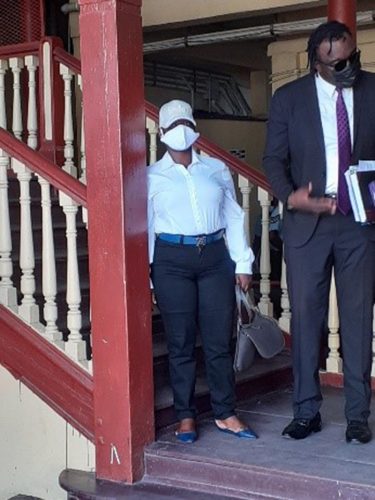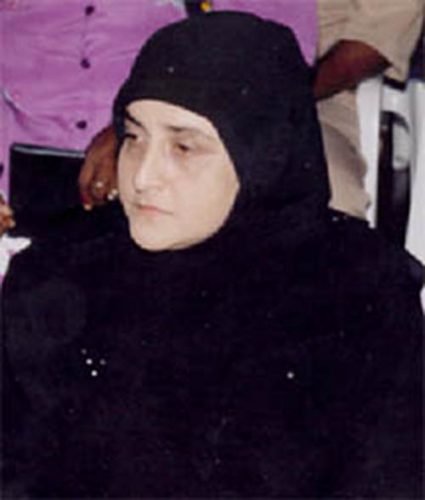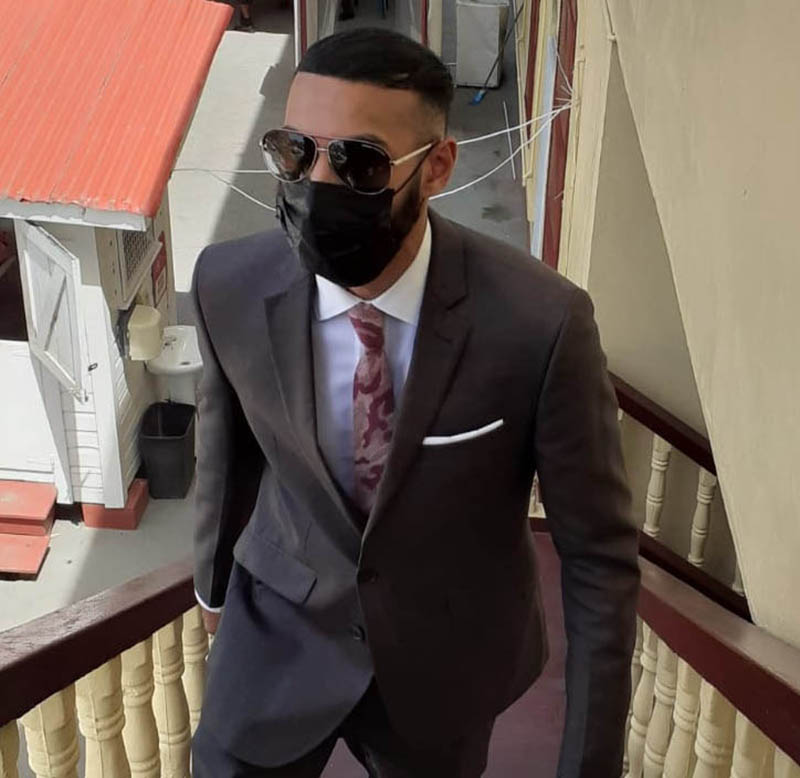One day after Director of Public Prosecutions (DPP) Shalimar Ali-Hack faced mounting criticisms for providing no reasons for her decision to discontinue the private criminal charge of racial hostility filed by police corporal Shawnette Bollers against attorney Nirvan Singh, her Chambers issued a statement saying that advice had been provided to the police, though that had been after Singh had already been charged.
That file had been sent to Ali-Hack before the private criminal charge was instituted. In fact, it was the police’s silence on the issue that led to Bollers’ attorney instituting the private criminal charge.

According to the DPP’s statement issued yesterday afternoon, advice had been given—close to a month now—on April 24th, on the file which the police had sent to her on April 11th. The incident complained of had occurred on March 20th and had raised questions about why the police had been dilatory on this matter.
The DPP’s statement steered clear of any direct reference to the private criminal charge for which Ali-Hack came under intense criticism from Bollers’ attorney Eusi Anderson.
What the statement did, was to say that advice had been given that a charge under Section 2 of the Racial Hostility Act, Chapter 23:01 had not been made out.
Noteworthy, however, is that Singh had already been arraigned on the private charge Bollers had instituted

against him under that section, by the time the statement claims advice had been given to the police.
On April 20th Singh was arraigned on the private criminal charge. At the time the private criminal charge was laid against Singh, the DPP had not yet provided advice to the police; and the advice purported in the press statement to have been so given to the police on April 24th, is in relation to the charge on which Singh had already been arraigned four days prior.
Stabroek News understands that the procedure is that the police would seek advice when they are unclear as to what charge is to be instituted, so it remains unclear what advice the DPP would have given to the police on April 24th, when Singh would have already been arraigned, and in relation to what charge.
Nonetheless, the DPP’s statement noted that her advice to the police was pursuant to Section 2 of the Act. It noted that the offence in Section 2 of the Act had not been made out.
The charge against Singh stated that on March 20th, 2022, at Middle and Cummings streets, he made derogatory and racial remarks to Police Constable Shawnette Bollers while she was on duty at his father’s residence, where he also resided.
His father is retired Chancellor Justice Carl Singh.
According to the charge, Singh, by means of words spoken in a public place, willfully excited and or attempted to excite hostility and ill-will against the complainant on the ground of her race as an Afro-Guyanese, by using words directed to her and published by him.
“Section 2 of the Racial Hostility Act, Chapter 23:01 states, “A person shall be guilty of an offence if he willfully excites or attempts to excite hostility or ill-will against any section of the public or against any person on the grounds of their or his race –
(a) By means of words spoken by him in a public place or spoken by him and transmitted for general reception by wireless telegraphy or telegraphs; or
(b) By causing words spoken by him or by some other person to be reproduced in a public place from a record; or (c) by means of written (including printed) matter or pictorial matter published by him.”
The DPP’s statement said that the elements of this offence are that 1. A person speaks words in a public place against any person on the grounds of their or his race; and 2. He willfully speaks those words to excite or attempts to excite hostility or ill-will against the person on the grounds of his race.
The statement then said that the section “when read as a whole suggests that the words spoken by the offender must also be transmitted for general reception by wireless telegraphy or telegraphs or be reproduced in a public place from a record.”
The words must be spoken the statement said, in a public place and transmitted for general reception by wireless telegraphy or telegraphs or be reproduced in a public place from a record. “The evidence in this file does not fit the criteria stated in the section 2 of the aforementioned Act,” the statement said
It further added that the word “against” used in the section tends to suggest that the offender by his words tends to cause others to act in a certain way against the virtual complainant. “Put another way, the offence is created when the offender’s expressions cause others to act in a certain way against a section of the public or a person on the grounds of their race (his expressions excited or attempted to excite others to act with hostility or ill-will against a section of the public or against another person),” the DPP’s statement said.
In the statement it is then reasoned that “here again, the evidence is not consistent with the offence creating section of the Act as the words used by the suspect were not spoken in order to excite others to act with hostility or ill-will against the complainant.”
Meanwhile, the statement said that with respect to the allegation by the complainant of being spat on by the suspect, “there is inconsistency regarding this allegation. The alleged incident occurred on the 20th March, 2022 at about 22:13 hours at the residence of the suspect. The said night the virtual complainant in her written report in the police diary which is attached to the file, stated “…I was verbally attacked by Mr. Carl Singh son with racial slurs and was asked to leave the compound however, I was about to document in the diary what was taking place; but after feeling threat for my life. Because he was in front of my face spitting up where I could smell the high volume of alcohol on his breathe I pick up my belongings, I step out of the location…”
The statement said that this written report on the night in question does not state that the suspect willfully spat on the complainant.
The DPP’s statement said that the statement of the complainant which is dated March 21st, the day after the alleged incident, states that the suspect “spit in my face” and “stepped away from the door.”
The DPP’s statement stresses, however, that this accusation was not reported in the police diary on the night of the incident when the events would have been fresh in the mind of the complainant.
“She also said in the said statement of March 21, 2022, `when Mr. Singh approached the hut door again and continue shouting, with spit from his mouth spraying in my face, get out of yard, get out of my yard.’
“Based on her evidence as a whole, it is clear that he was “spitting up” while speaking and it was not a deliberate act of spitting,” the DPP’s statement concluded.
Notwithstanding the DPP’s powers to discontinue the charge under Article 187 of the Constitution, there are likely to be questions regarding her determination of the elements of the offence not having been made out given the principles of the Separation of Powers doctrine, which reposes in the Court the power to interpret the law.
Up until Wednesday of this week when the matter was called for the second time, it had not been known that the DPP had provided any advice to police nor that Ali-Hack had written Chief Magistrate, Ann McLennan on April 27th advising of her decision to discontinue the private criminal charge.
Due to Magistrate McLennan’s absence, the announcement was only made on Wednesday by Principal Magistrate, Sherdel Isaacs-Marcus.
Anderson has said that neither he nor his client had received any letter from the DPP on the discontinuation of the charge.
According to reports, it was alleged that the lawyer verbally abused Bollers while she was on guard duty at the residence of his father, retired Chancellor of the Judiciary, Carl Singh, at Lot 35, Middle and Cummings streets, Georgetown.
Bollers had filed a defamation suit against the attorney back in March and in her statement of claim, she stated that while on duty at Justice Singh’s residence, on the night of March 20, his son (the defendant), approached and chased her off the property.
She said that the incident occurred at approximately 22:13 hrs that night and she was forced to immediately abandon her post and duties, having to walk for a couple of miles to another location “in the dark of night alone.”
Bollers has said that she intends to challenge the DPP’s decision all the way to the Caribbean Court of Justice.





